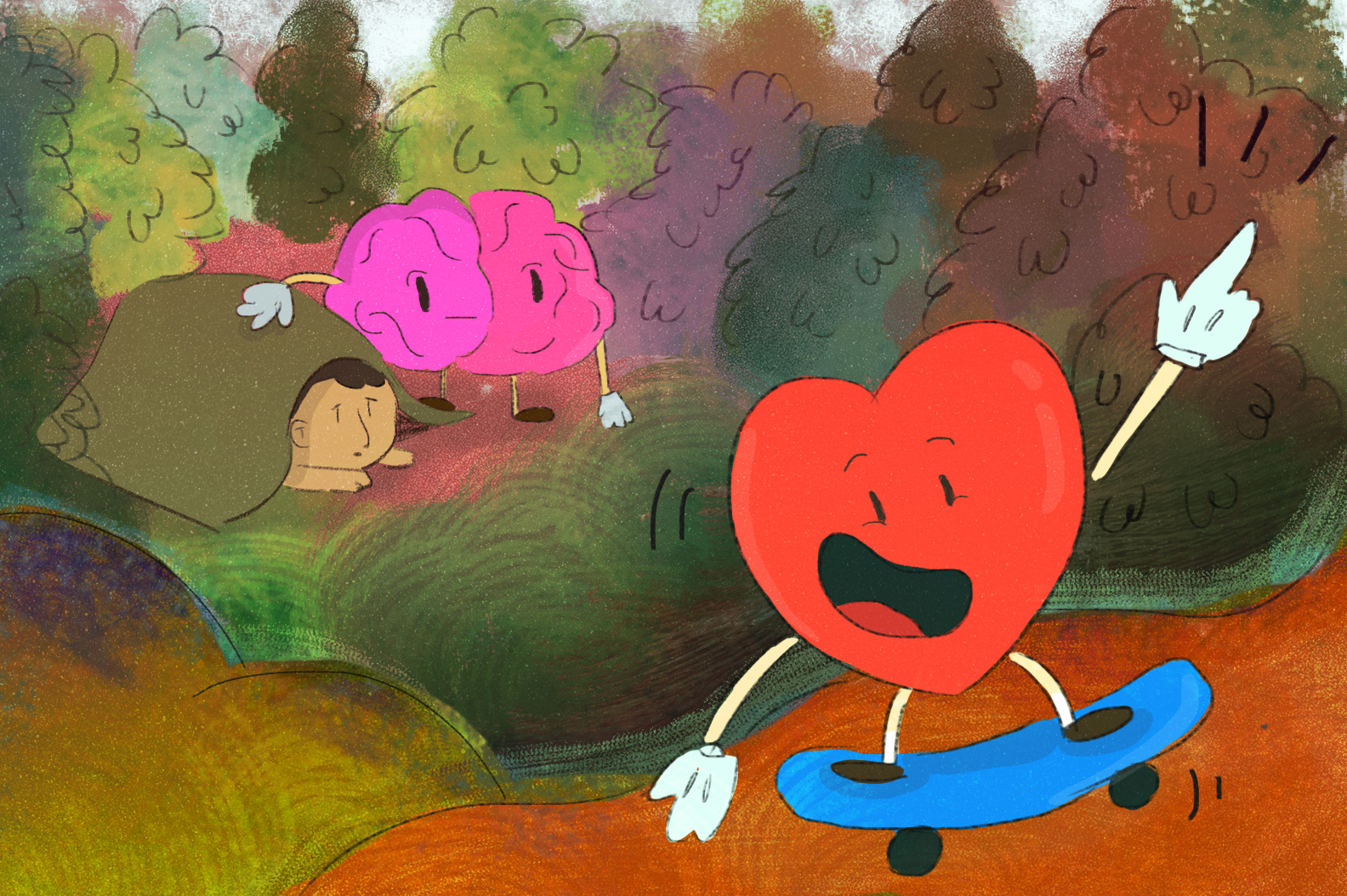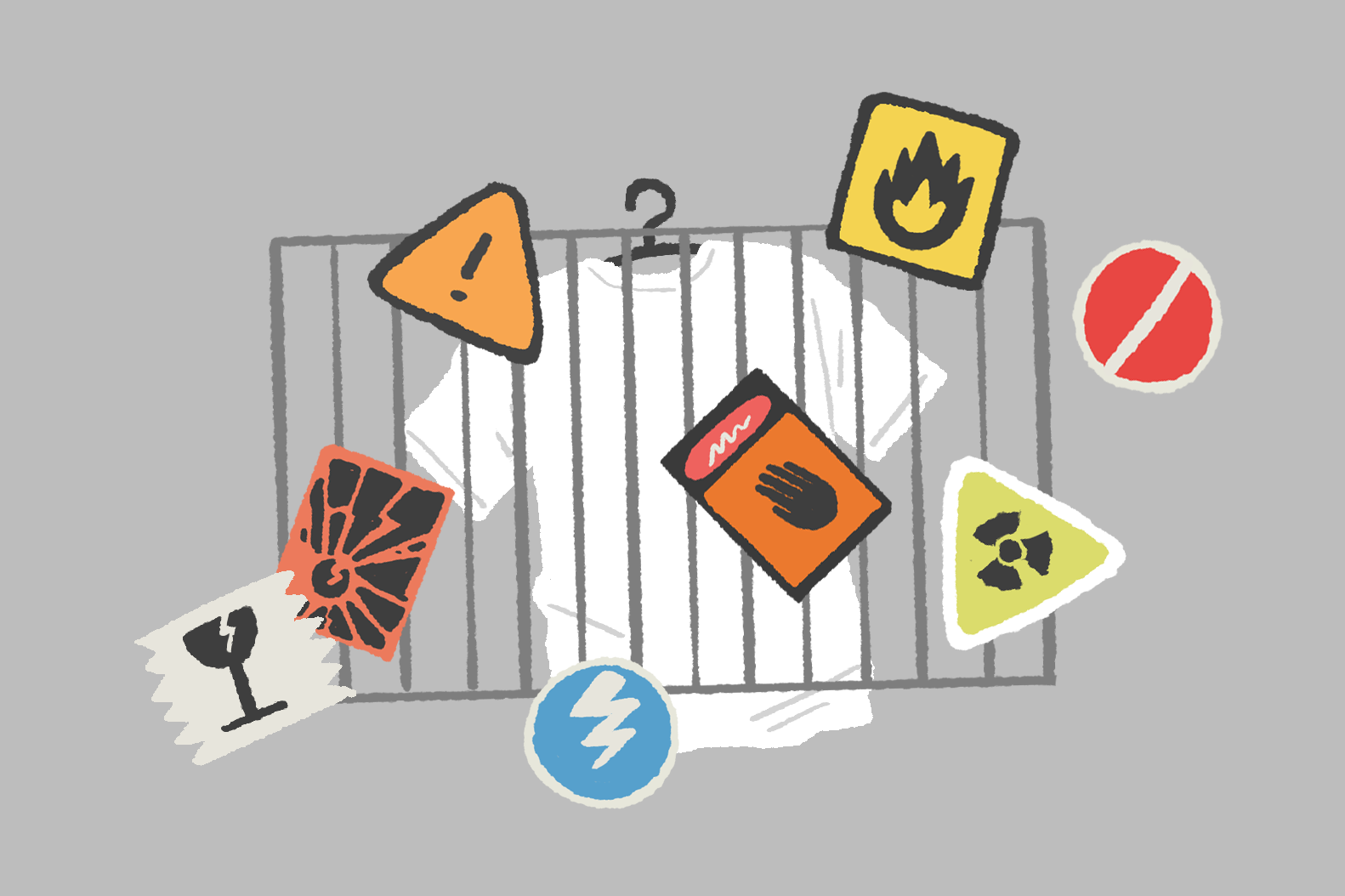I recently came across this Instagram post on “Wisdom for a Catastrophising Generation”.
While it is certainly good that mental health is now being taken seriously, it made me wonder if our generation is too quick to assume the worst possible outcome especially when it comes to our emotions and mental health.
- Are we being too quick to label ourselves with mental health issues?
- How seriously should I take my friends when they say they have depression?
- How should we manage our emotions so that they don’t snowball into a mental health issue?
We’re not qualified to answer questions like these, so we spoke to Pamela Koh, an experienced counsellor and therapist at ThriveSg, who shares how to manage our emotions and care for our mental health and wellbeing.
What should we do if friends repeatedly say they’re depressed?
“I think it’s important for us not to make assumptions,” said Pamela. “Maybe for some people, when they say they’re in pain, they’re really in pain and they’re not exaggerating.
“Trauma is not what happened, but it’s the perception of the person experiencing the situation that makes it traumatic for him or her.
“So it’s not up to me to judge, whether what you’re going through is traumatic or trivial.”
Instead of jumping to prescribe medication or dismissing such claims altogether, Pamela offered a different perspective.
“We feel like we need to like solve problems or give advice, but what’s more important is for us to listen to one another with curiosity.
“Only after a conversation, will we begin to understand their worldview – whether they are influenced by social media or really by their background.”
If we find that our friends are using some terms very insensitively or loosely after having listened to them, there is space for gentle correction, Pamela added.

Pamela also cautioned against self-diagnosis, such as going on Google and assessing yourself as depressed.
Depression, for instance, can only be accurately clinically diagnosed according to a psychiatrist’s Diagnostic Statistical Manual (DSM).
“While Google can tell you many things, you’re not trained in mental health,” she said.
“You may not have an accurate understanding of what you’re going through.”
“For example,” continued Pamela, “If you just lost a loved one very dear to you very suddenly, it may seem that you might have depression.
“Maybe for the next two months or so you may be having insomnia. You may be feeling a lot of sadness and anger, or feel that life’s not worth living.”
Pamela’s point was that based on such “symptoms”, Google might tell you that you’re depressed – when you are in fact actually going through what is called “normal grieving”.
“Whatever you are feeling is a normal response to an abnormal situation, and you’re in the process of grief,” explaining Pamela.
Be curious about the story behind the emotions, instead of focusing on the diagnosis.
Continuing on from that example, Pamela said: “If you just Google and self-diagnose without seeing a mental health professional, and prescribe yourself antidepressants, that’s not very helpful.
“Because if you are grieving, maybe all you need is you just need to talk to a counsellor to help you through the grief.”
Pamela’s encouragement is thus to not be too quick to label, and instead allow ourselves to come into a journey of self-discovery.
“Be curious about the story behind the emotions, instead of focusing on the diagnosis,” she said.
How can we build up emotional awareness?
In terms of handles, Pamela offered three keys in managing our emotions.
1. Know your coping mechanisms
Pamela highlighted that social media, pornography, Netflix and K-Dramas are very common devices that people use to distract themselves or avoid and suppress negative emotions.
However, these are unhealthy in the long run.

Affirming that awareness is the first step to change, Pamela urged the importance of identifying our coping mechanisms.
From there, we can then make a conscious choice not to run to these coping mechanisms as an escape from having to deal with our feelings.
2. Be in touch with your body
Another tip she recommends to stay in touch with our emotions? Bodily sensations.
“When we’re anxious, some of us will feel like our tummy will tighten up,” said Pamela.
“Or when we’re angry, maybe we clench our teeth very tightly. When we are experiencing heartbreak, maybe we feel that our heart is very painful.”
Since emotions can be felt in the body, we can understand our psychological state better just by observing what our body is feeling.
3. Befriend your emotions
Befriending your emotions is a concept that Pamela introduced.
It means learning to be curious about our emotions, and being comfortable to sit with them.
Befriending our emotions and reflecting on them is key to understanding why we feel the way we do.
After all, emotions aren’t something to be wary about – God has given them to us to feel, not to suppress.
Befriending our emotions and reflecting on them is key to understanding why we feel the way we do.
How can Christians deal with “taboo” emotions like anger or shame in church?
“I think it’s very important to teach our youths a right, Biblical understanding of emotions,” Pamela said.
“Because never in the Bible does God say that anger is sin or anger is wrong.
“Emotions are not right or wrong. God created us with emotions. Jesus Himself showed emotions.”
Using the example of Ephesians 4:26, Pamela explained: “It doesn’t say ‘don’t feel anger’. Feeling the emotion is not wrong.
“It is the consequence of what you do with your emotions that could lead to sin.”
“So it’s not wrong to feel angry or upset,” she affirmed. “You have to allow yourself to feel. Suppressing your anger is not going to help you be emotionally healthy.
“Only when we are able to allow God into our emotions and be honest to God about how we feel – then can we process our emotions and not sin.“

In terms of how to deal with anger, Pamela gave several tips:
- Acknowledge the anger
- Bring it before God
- Have conversations to discover why you’re feeling angry
- Don’t react, but respond
Pamela also had an important point to make about anger in the church as well: “Sometimes we tell a person who’s angry, ‘He’s your brother in Christ, you should forgive him’.
“Or we make statements like, ‘You’re Christian, right?'”
To Pamela, it is not productive to expect a person who is very angry to immediately forgive.
Saying “I forgive” mindlessly is just lip service when actual forgiveness has not been released.
It takes time for my heart to heal – and that’s okay.
“We want to jump from anger to forgiveness, and sometimes that’s what we tend to do in church,” she reflected, noting how forgiveness is held up as the “right” Christian thing to do.
“It’s true that forgiveness is a choice,” she noted. But the emotional forgiveness actually takes time. Even if I make a choice to forgive, it doesn’t mean I don’t feel hurt and pain.
“God also knows that it takes time for my heart to heal – and that’s okay.”
When it comes to shame, Pamela believes it is more complicated than anger.
Shame is often linked to childhood trauma, so resolving shame also means resolving the trauma is necessary as well. Furthermore, our Asian culture is very “shame-based”.
The antidote to shame, Pamela said, is compassion.
Compassion is not about excessively treating ourselves or allowing ourselves to indulge.
Instead, real compassion involves doing what is needed to take care of myself healthily, she said.
Pamela then shared that compassion can involve making hard decisions for ourselves, such as drawing boundaries or even cutting off toxic people from our lives if necessary.
Other ways we can be compassionate to ourselves include:
- Developing a healthy inner voice
- Using God’s Word to encourage ourselves
The most important thing, Pamela added, is to remember Jesus: “Remember that Jesus Himself knows what shame is.
“Jesus was crucified on the cross in a very shameful way. He was stripped, He was whipped – and He is the Son of God!
“That’s what we can find comfort in: Our Saviour knows what shame means and He can heal. He resurrected from death to life. He overcame shame, and He will help us overcome our shame.”
What role can leaders play?
Pamela also urged church leaders to speak into the lives of youths around them.
She observed that teenagers are at an age where they are looking for role models and mentors.
Leaders can thus exemplify to them what it looks like to deal with negative emotions in a God-honouring manner.
“Teach them to be to be vulnerable to the right people,” encouraged Pamela. “Teach them to be authentic towards God. Help them to see God for who He is, that God cares about our emotions.”
“In Isaiah 61, Jesus said He comes to heal the brokenhearted and set the captives free,” she noted, adding that she believes it isn’t just literal freedom Jesus is bringing, but also emotional freedom.
Pamela added that leaders should engage youths in conversation about their emotions.
She believes that when youths realise that God isn’t going to “reject” them when they feel such negative emotions, they will feel that it is safe to come before Him honestly.
“When they see their youth leaders going through situations and talking to God about it, this vulnerability models for young people that it’s okay to feel these emotions,” shared Pamela.
In turn, that spurs these young people on to “take responsibility” for their emotions in a positive way.
Emotions can be complex, but we don’t have to run from them.
My takeaway and hope from my time with Pamela is that all of us would walk with a community of believers and support one another!
Most importantly, remember: The Lord, who made us fearfully and wonderfully (Psalm 139:14), will definitely journey with us through our emotional ups and downs.
Looking for professional advice when it comes to dealing with shame and trauma? Start by checking out ThriveSg for more resources on mental health!
By the way, if you’re available for at least a year and interested in social media/graphic design, do consider volunteering with Pamela and ThriveSg!
- What have you learnt about your emotions or the way you handle them from this article?
- How do you personally cope with negative emotions?
- What is one practical thing you can do to begin managing your emotions in a more healthy way?









